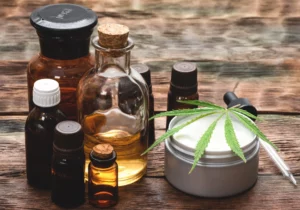Although Colorado recently declined to approve medical marijuana for the
treatment of post-traumatic stress disorder (PTSD), a growing body of
research shows a strong connection between the endocannabinoid system
and PTSD.
PTSD and the Endocannabinoid System
PTSD involves a series of conditioned fear responses. In the words of
Dr. Alexander Neumeister of the NYU School of Medicine, "[PTSD] is an
illness where people cannot forget what they have experienced."
Increasingly, it appears that the endocannabinoid system may play a
large role in protecting against it. This may be due to both the number
of cannabinoid receptors in the brain and the levels of cannabinoids
present. PTSD sufferers tend to have more cannabinoid
receptors
than others, along with lower levels of at least one endocannabinoid.
Low Cannabinoid Levels Increase the Likelihood of PTSD
A 2013 study published in the journal
Psychoneuroendocrinology
suggests that the role of the endocannabinoid system in protecting
against PTSD may be critical. A joint effort between U.S. and Canadian
researchers, the study examined 46 subjects who were in the vicinity of
the World Trade Center during the 9/11 attacks. Of the participants, 24
suffered from PTSD while 22 did not. Researchers discovered that those
who experienced PTSD symptoms also had lower concentrations of
anandamide — one of the body’s naturally-occurring cannabinoids — than
those without PTSD.
The cannabinoid receptors concentrated in the brain and nervous system
that mediate many functions, including emotional learning and adaptation
to stress, are called CB1 receptors. They’re also involved in fear
extinction, which is defined as a decline in conditioned fear responses.
When the brain experiences deficits in cannabinoids, this can interfere
with CB1 signaling. Improper CB1 signaling can result in the hallmark
symptoms of PTSD, including impaired fear extinction, poor memory
consolidation, and chronic anxiety.
Further research, including a 2013 study conducted at the NYU Langone
Medical Center, supports this idea. The study, published in Molecular
Psychiatry, used positron
emission tomography to look at the brains of subjects with PTSD and
without. The study included 60 people, and found that not only did
subjects with PTSD have lower anandamide, they also had more CB1
receptors in the areas of the brain associated with fear and anxiety.
This suggests that using cannabis to increase cannabinoid levels may be
an effective tool for the treatment of PTSD.






